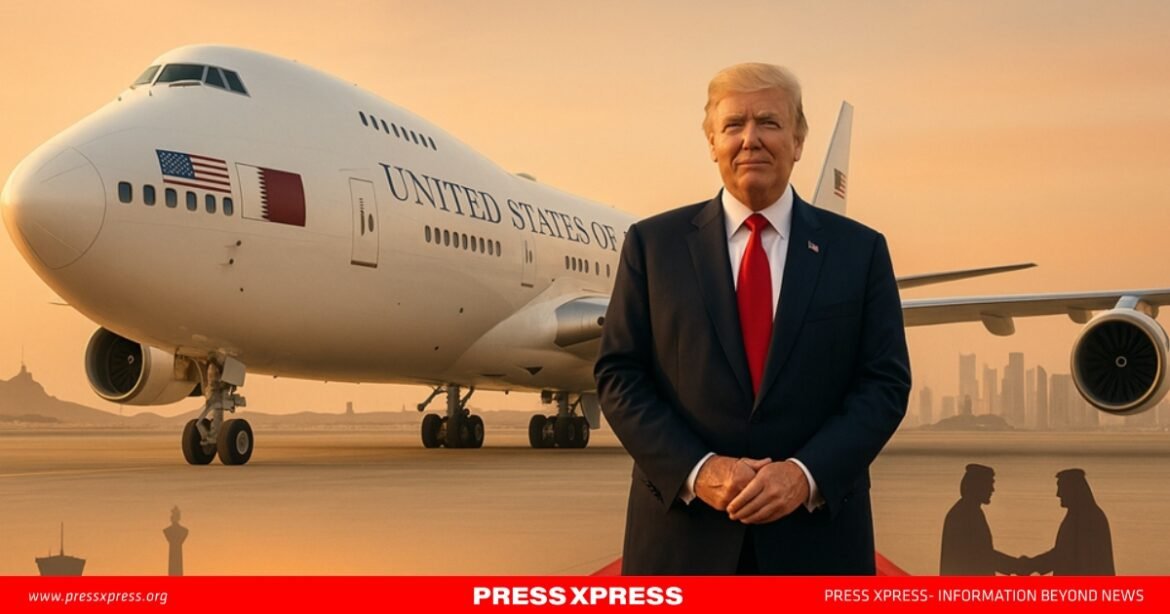Donald Trump’s upcoming visit to Qatar is shaping up to be more than just a diplomatic stop—it’s a reflection of how deep and multifaceted the U.S.–Qatar relationship has become. At the heart of the visit is a gesture that’s making headlines around the world: the Qatari royal family is expected to gift Trump a luxurious Boeing 747-8, which he may use as his own version of “Air Force One.”
But behind the headline-grabbing jet is a much bigger story—one of strategic partnerships, shared economic interests, and the kind of personal diplomacy that defined Trump’s time in office.
A Trusted Strategic Partner in the Gulf
Qatar has long been one of the United States’ most important partners in the Middle East. Since the 1990s, it has hosted Al Udeid Air Base, the largest U.S. military base in the region, housing over 10,000 American troops. It plays a key role in supporting U.S. operations across the Gulf and Central Asia.
Trump’s administration valued this partnership highly and continued to build on it. His foreign policy emphasized clear, direct relationships that served American interests—and Qatar fit that model well.
Strong Economic Ties, Built on Mutual Interests
Qatar is not only a military partner—it’s also a major investor in the U.S. economy. Over the years, it has invested more than $45 billion in U.S. industries, including real estate, technology, and infrastructure. Under Trump’s leadership, these investments expanded, and key business deals flourished.
One standout deal came in 2018, when Qatar ordered $18 billion worth of Boeing aircraft—supporting thousands of jobs in the U.S. aviation industry. That same spirit of economic cooperation continues today, with both sides benefiting from strong commercial ties.

The Jet: A Gift with Meaning
The planned gift of a custom Boeing 747-8 to Trump isn’t just an extravagant gesture—it’s deeply symbolic. In Gulf culture, such gifts reflect deep respect and recognition of leadership. The fact that Qatar’s royals are honoring Trump in this way shows the value they place on his role in strengthening ties during his presidency.
The aircraft, one of the most advanced and luxurious of its kind, is estimated to cost around $400 million. For Trump, it could serve as a high-profile tool for international travel, media engagement, and continued diplomacy.
Diplomatic Balance in a Complex Region
Qatar’s position in the region is unique. While it maintains U.S. ties, it also hosts political offices for Hamas and has relations with Iran. These complexities have made Qatar a critical diplomatic bridge between parties who often won’t speak directly to one another.
During Trump’s term, his administration recognized this. Rather than distancing the U.S. from Qatar over controversial ties, Trump embraced Qatar’s role as a behind-the-scenes negotiator. This was clear during the 2020 U.S.–Taliban peace talks, which Qatar hosted and Trump actively supported—leading to a breakthrough agreement.
A Visit That Reinforces Influence
Trump’s visit is more than symbolic—it’s a continuation of a relationship that reflects his broader foreign policy style: pragmatic, personal, and focused on results.
In a world where alliances are constantly shifting, Trump’s ability to maintain strong ties with key partners like Qatar highlights his lasting influence. As the U.S. navigates new global challenges, this visit shows that Trump is still an important figure on the international stage—especially in a region where trust and personal diplomacy matter more than ever.


